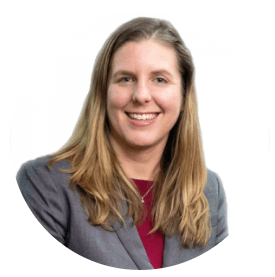
It’s no secret to MassBio members that the life sciences is on the front end of a significant boom. Fueled by innovation, collaboration, and accelerated funding, the signs of growth are clear.
We’re seeing IPOs, overseas expansions, and an influx of venture capital financing into well-known Boston players. “There has…been a massive amount of investment, acquisitions, public offerings, and laboratory construction during a time when many businesses struggled to keep the lights on,” Scott Kirsner pointed out in his June 15 column. “The biotech sector seems poised to emerge from the pandemic as the city’s dominant and most visible industry.”
With so much activity and opportunity, talent acquisition and development are struggling to keep pace. Karla Talanian dug into this topic in a recent MassBio post about how companies can continue to develop a workforce to meet the increasing industry demands. She noted that in Massachusetts, recruiting is more intense than the national averages: 18% of jobs require at least a Ph.D., compared with 12% nationally.
The squeeze for such talent forecasts to be even tighter going forward: while the pursuit of doctorate degrees is high in this region, it is much lower nationwide. “Since recruitment for these individuals is typically conducted on a national scale,” Karla wrote, “this dearth of new talent is especially worrisome for an industry that relies on a highly-skilled, hyper-educated workforce.”
Certainly, part of the solution is cultivating younger talent, as Karla suggests. Foreign-born talent, however, is also a critical component. Immigrants make up around 25% of all U.S. science and technology workers and around 50% of the doctoral-level life science workforce nationwide. In 2018, more than 43% of life scientists, such as biologists and health scientists, and 36% of physical scientists, such as chemists, were foreign-born workers.
Talent from abroad also feeds the company leadership pipeline. A study by INSEAD (Institut Européen d’Administration des Affaires) found that out of 147,336 U.S. executives for which educational background was available, 3,098 corporate leaders were of Chinese ethnicity, 3,095 Indian, and 1,395 Middle Eastern. The remaining 139,748 were from other ethnicities, including European. As the study authors noted, “If the U.S. hopes to address its leadership shortage as its population ages, it needs to embrace immigration and acknowledge the significant contribution that immigrant executives already play.”
To create and maintain an immigration program that provides regular access to this talent, life sciences leaders and HR professionals should know the options available to them. The most commonly used visa to bring foreign employees to the U.S. is the H-1B visa. Unfortunately, Congress has capped this visa category at a number far less than our economy needs; forward-thinking companies are therefore leveraging alternatives to reduce their reliance on H-1Bs. For instance, an O-1 visa is a merit-based visa for workers with extraordinary abilities who are recognized within their field. TN visas can be used for professionals from Canada and Mexico in designated occupations, and companies can use E-3 visas for professionals in specialty occupations from Australia.
Companies willing to recruit students and recent graduates have additional options. Under an F-1 visa, international students who attend or have graduated from an accredited U.S. institution can obtain Optional Practical Training, which provides for up to 12 months of employment in the field of study with extensions of an additional 24 months for those with degrees in STEM fields. The J-1 visa lets employers place foreign workers in various roles like interns, trainees, and research assistants.
As new members of the MassBio community, we’re excited to share our expertise in life sciences immigration – and to learn more about how companies in our community are growing and managing their talent. Our goal is to help empower innovation by bringing outstanding foreign-born talent into these change-making organizations, and we look forward to an ongoing exchange of ideas with member companies.
About the Author

Julie Galvin
Senior Associate, WR Immigration
Julie Galvin has extensive experience advising a wide variety of clients, ranging from non-profit organizations to multinational corporations, regarding all aspects of employment-based immigration, including nonimmigrant visa petitions, labor certification applications, preference-based immigrant visa petitions, and regulatory compliance. She also advises musicians, scholars, and educational institutions, as well as families and individuals.
Julie gained over 10 years of experience as Immigration Counsel for a management-side employment law firm and as an Associate at a boutique immigration law firm, where she worked on employment-based and family-based immigration matters, as well as naturalization applications.
Julie earned her J.D. from the Washington College of Law at American University, located in Washington, D.C., where she served on the American University Law Review and was a student attorney in the International Human Rights Law Clinic, where she gained experience in asylum cases. She earned her B.A. from the University of Vermont, with a major in Philosophy and a minor in French. She is a member of the American Immigration Lawyers Association (AILA). She has spoken at the AILA New England Conference and MCLE and Boston Bar Association events. Outside the office, Julie enjoys reading, yoga, skiing, and spending time with her family.